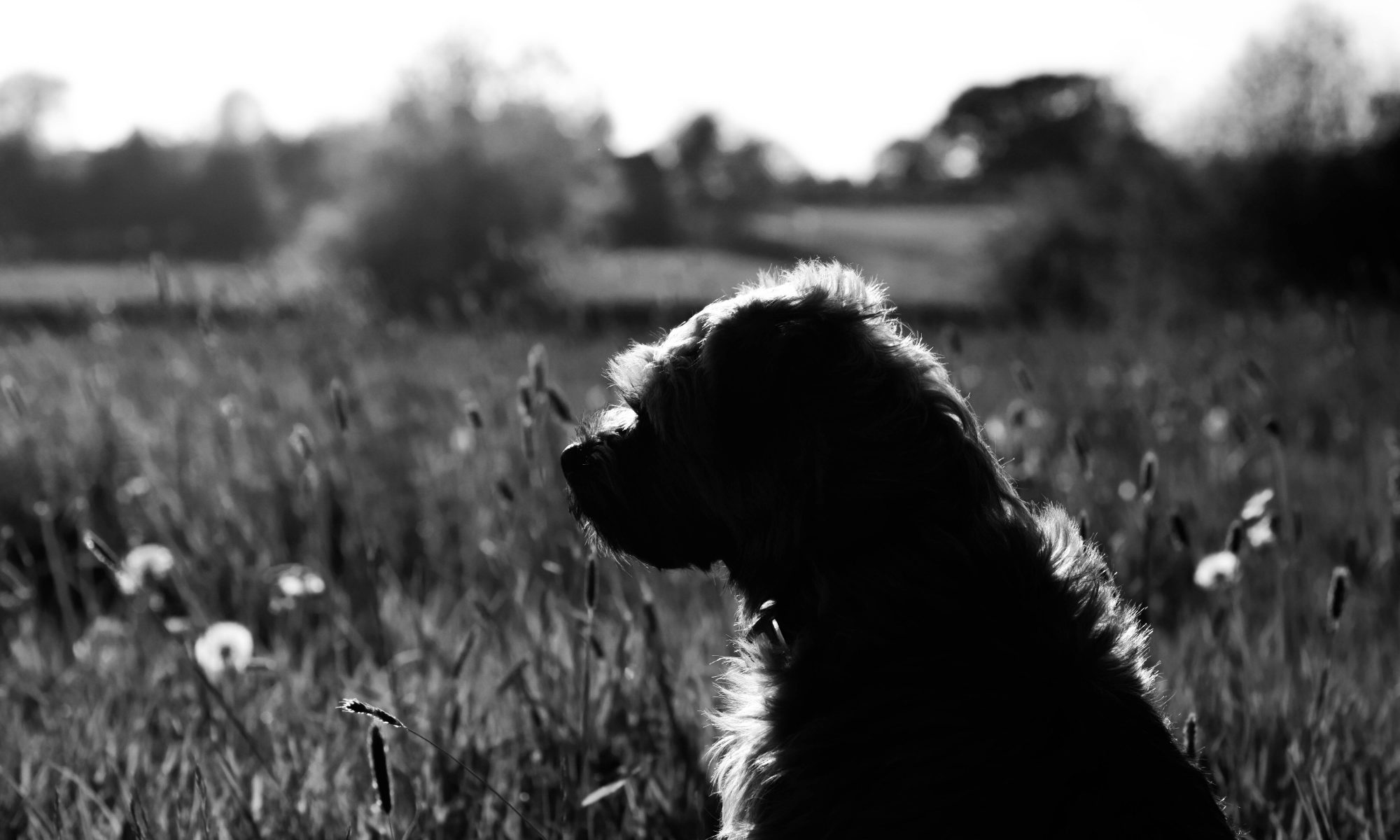We all know what rewilding is, don’t we? It’s the random scattering of deadly and long vanquished super predators onto farms, grouse moors, and into woodlands without consent. Super predators with a culinary penchant for mutton, family pets, and members of the public. It’s the furry and the furious. It’s the green and pleasant replaced by the red in tooth and claw.
So when a Royal Geographical Society “Question Time” style panel discussion titled “Re-Wilding in Nidderdale and the Uplands” is advertised, you can almost hear the old Wartime Broadcasting Service cranking up and screaming a new message for the 21st century: “This country has been attacked with zoological weapons. Stay tuned to this wavelength, stay calm and stay in your own house. Remember there is nothing to be gained by trying to get away. By leaving your homes you could be exposing yourself to greater danger. If you leave, you may find yourself without food, without water, without accommodation and without protection. You may even be the food.”
It was on a clear, sunny May evening, not far from Britain’s oldest sweetshop, on Britain’s Best Village High Street, that the curious and the concerned were expected, perhaps as many as 20 or 30. But whether through worries over the climate emergency, niggles about the accelerating loss of biodiversity, or the abject fear of the imminent seeding of the landscape with savage beasts, around 100-150 actually packed in to the main hall of Nidderdale High School to put questions to, and hear the thoughts of, the panel. There was even someone who’d tanked it down all the way from Berwick in Northumberland. Then all the way back again after the event.
Most capably facilitated by a Fellow of the RGS, the panel itself was drawn from a wide range of stakeholders, collectively representing the diversity of interests and traditions in the dales and uplands.
Would there be an Entente Cordiale develop through a meeting of minds with shared views? Or would there be a total stubborn unwillingness to look facts about biodiversity loss in the face?
The panel was: a gamekeeper; an estate owner with extensive moorland and a shoot, as well as substantial agricultural holdings and interests; a site manager from the Royal Society for the Protection of Birds who manages two upland farms with a focus on biodiversity gains and whilst also maintaining a viable farming enterprise; a professional conservationist from the Yorkshire Wildlife Trust with a specialism in upland habitat management; a professor of Conservation and Society from the University of Leeds with expertise in biodiversity conservation, political ecology, rewilding, the social impacts of conservation, and the politics of conservation; and a researcher from the University of Leeds looking at “The Future of Human-Carnivore Conflict and Coexistence in Europe”, more specifically looking at the dynamics between returning large carnivore populations (mainly wolf and bear), managing authorities, and local communities. What?! Wolves and bears?!
And centre stage, if entirely hidden from view as more an “I know what you’re thinking” sort of a beast, was the elephant in the room. The one with paws, claws, and jaws.
So that’s what was tackled first.
As the big first question of the evening, the whole Jaws-With-Paws thing was discussed more in terms of that tricksy, troublesome word itself, “rewilding”. What is it, exactly? Is it about the big ticket carnivores, or is it about the habitats, the diversity of species at all scales, the land uses? The panel’s answers fell into fairly predictable “camps”. In the red corner, the concerns of the current custodians of the land, worrying about the sensationalist headlines they’ve read, sweating about the impacts of enforced changes, palpitating about profits after the imposition of such changes, fretting about the implications for long established traditions, and anxious about the communities of the rural uplands. In the green corner, the insights and experiences of those researching and working in conservation.
It quickly emerged that “rewilding” is not a very useful word to anyone, even if some of us in the room were, and are, massive proponents. It’s seen as being too mixed up with teeth and claws when, it truth, it’s more about natural processes, soil fertility, worms, pollinators, mini-beasts, habitats, and water. Yes, yes, of course it eventually goes all the way up to the apex predators, but nature in the UK has a long road trip to undertake before any such final destination is reached. And rather paradoxically, given the direction many of us would like it to take, autocorrects seem to prefer “rewinding”.
And with the closure of that question, the bears and the wolves were vanquished from the room, returning only occasionally as anecdotes to tease a thoroughly engaged audience.

With the metaphorical elephant gone, a number of questions were put to the panel covering such topics as how the custodians of the land might be able to evolve their businesses to enhance the natural world under their stewardship without losing money.
For the land managers, it all comes down to change and, one might speculate, possibly the fear of change. They don’t particularly want to see their centuries-in-the-making ways of using the land, enjoying the land, and earning a living from the land being stomped on by, to them, the deadly duo of changing subsidy payments and misguided and badly aimed legislative sticks. In many respects, a reluctance to recognise that any change is even necessary seemed the prevalent stance. Perhaps even an outright denial of any need for any change? After all, the land they nurture and love is, in their view, perfectly fine and everything is in balance because they keep it so. Predators are kept in check, so upland birds are protected. And money just pours in from the shoots, it seems, keeping many local people in local villages locally employed. And everything is nice and tidy, not like the mess that Brimham Rocks has become under the management of that rabble, The National Trust, who’ve just let it all go to birch trees, scrub, bracken, and corvids. What a mess! And how many red kites can one dale really support? Oh, and don’t forget the growing number of people that need to be fed.
It was very clear how Shifting Baseline Syndrome, the gradual change in the accepted norms of how the natural environment should be and what it looks like, has radically altered and shaped the views of the current “custodians” of the land.
Conversely, some of the farmers who’ve been working hard on their own farms to improve conditions for nature, increase biodiversity, and champion the benefits of doing so, were variously tutting, muttering under their breaths, rolling their eyes, and shaking their heads at these traditional arguments from long-entrenched positions.
The entente cordiale was looking like it would not be getting capital letters this evening.
The other members of the panel cited knowledge and gave examples from research findings, observations, and real experience that were, in effect, counter arguments. There was discussion around the positive impact on farm productivity from lower stocking rates and increased numbers of pollinators from more flower-rich meadows, headlands, verges, and other marginal areas of land. There was talk of how wild animal populations tend to adjust and reach equilibrium based on nature’s version of the law of supply and demand, the predator-prey balance. Everyone agreed that increased nature tourism in the dale would be no bad thing, but also accepted that there’s not enough of it to go round the whole country and so not everywhere would experience beneficial effects. Supply and demand again, I guess. Much lauded, yet still fenced-in across a pitifully small number of “trials”, the beaver finally put in an appearance in the evening’s discussion. After some humorous exchanges about a flooded Co-op store in the Highlands, the benefits of these busy little bucktoothed civil engineers was discussed. A nod was pragmatically given to some negative elements of beaver ecology that can occur in some environments, but aside some mild scepticism that there would be any suitable habitat for them in Nidderdale, it was clear that there was positive interest in them throughout the room.
The landowners answered questions around what could be done on their holdings to improve biodiversity. “Balance” was the word most frequently used in responses. It was used, however, in the context of “no change”. Now change can be proactively embraced or reactively responded to, and resistance to change, perhaps from a mind less open to what could be just a bunch of radical and subversive ideas, can mean opportunities are missed. As it stands currently, balance in the UK countryside really means “managed for economic purposes” and is, invariably, far from balanced.
More than one of the audience expressed hope in the future generation coming through our excellent state education system, and it was refreshing that the GCSE geographers from Nidderdale High School posed many of the questions that were on the lips of most of the rest of us. They did a stunningly good job of it too.
Although the panel was quite clearly grouped into the respective “camps”, in truth, by the end of the debate, these camps were not the inseparable and contradictory opposites that they could have so easily been. Despite some of the traditional, entrenched, and sometimes just factually wrong responses and positions of the land owning and management camp, they did not seem closed off to the idea, or at least some aspects, of rewilding. I sensed a willingness to be shown more, and perhaps they just need to be taken on a journey of discovery to find the opportunities that may be uncovered. They acknowledged that changes are coming that will most likely materially change what they are paid their subsidies for, and that there will be further legislative carrots and sticks that will, overall, support activities that improve biodiversity and mitigate the impacts of climate change. As one of the panel reminded us all, the government expects to pay land owners “public money for public goods”.
The whole event was warmly received and with everyone feeling that we ran out of time with many more questions to ask and much more to discuss, there is clearly an appetite to develop this discussion further, and the RGS is to be commended for organising and facilitating it. Both the audience and the panel gave a sense that each “camp” in the discussions is far more likely to move towards each other with time than not; whether through desire, legislative changes, or both. The question now is how everyone who came to the discussion can progress the discussion. The key to successful “rewilding” is going to reside with the custodians of the land that we want to “rewild”, with the active support of those who want to see more “rewilding”.
It seems the bears and the wolves might have to wait some time. Unfortunately.

